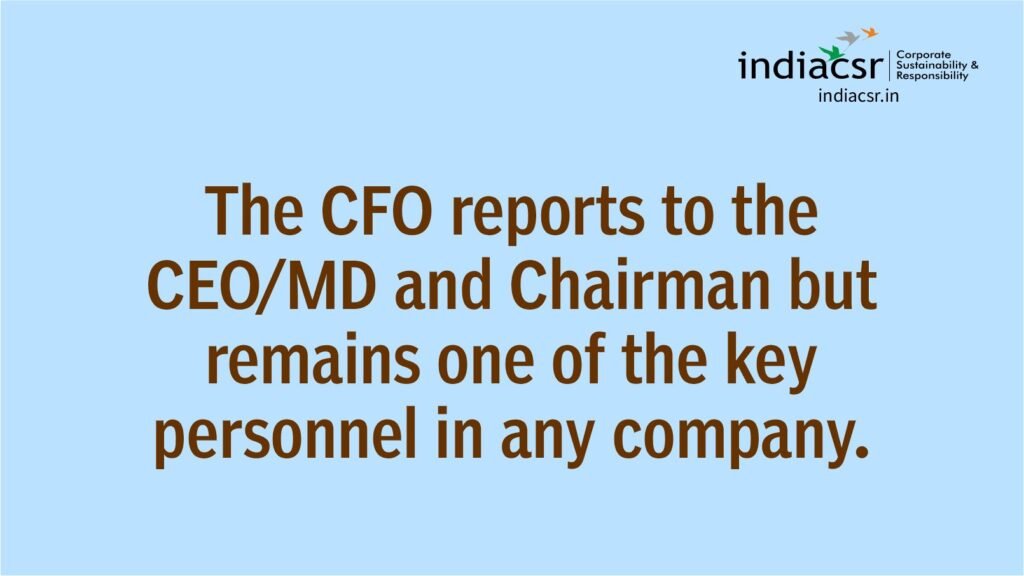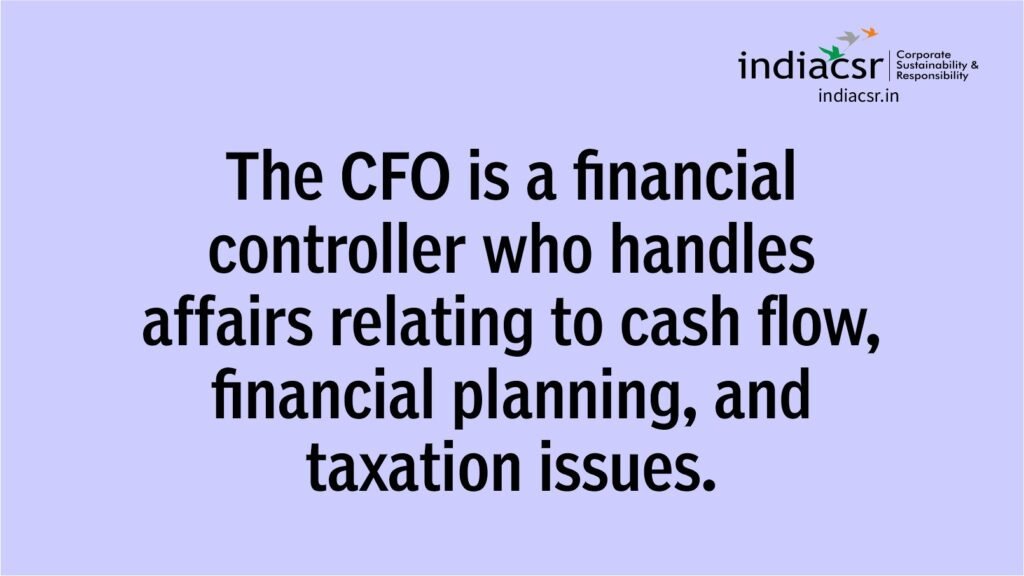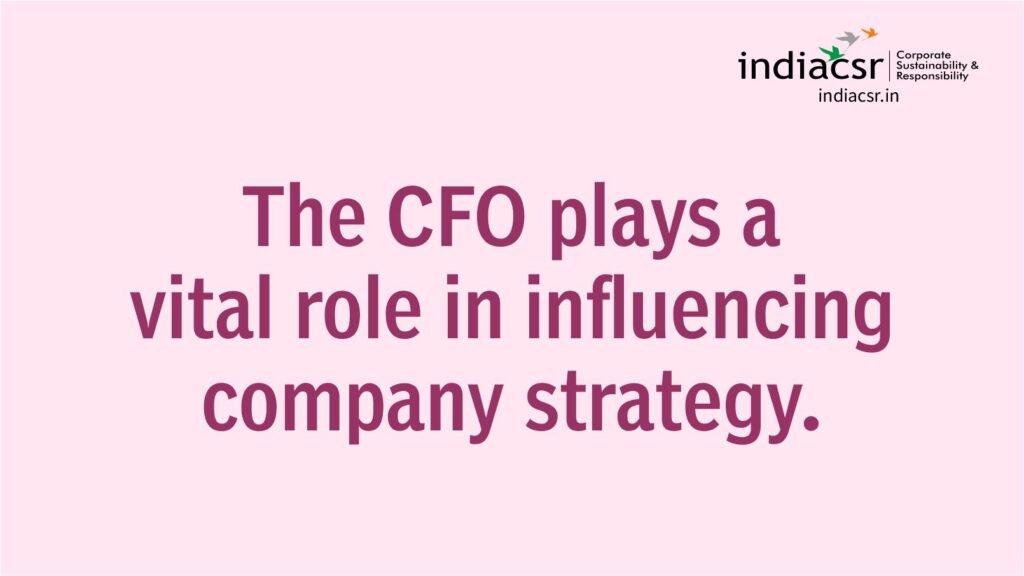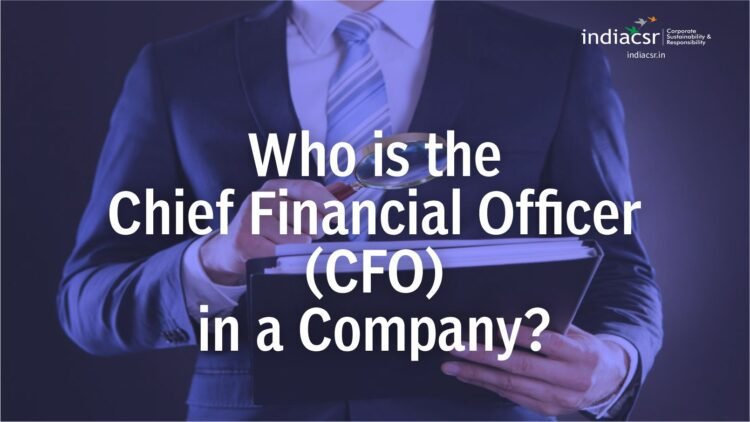A CFO can become a CEO, COO they can assume the role of company Chairman and Managing Director.
When a company appoints a new Chief Financial Officer (CFO), it is customary to inform its stakeholders. Recently, Reliance, a major Indian company, announced the appointment of a new CFO. If you are curious about the role of a CFO in general and its significance in a company, allow us to provide you with a detailed explanation. The CFO plays a crucial role in assisting the Chairman and Managing Director of the company with a wide range of strategic issues.
Who is Chief Financial Officer (CFO) in a Company?
A senior executive known as the Chief Financial Officer (CFO) is in charge of overseeing the business’s financial operations. They are frequently in charge of keeping track of cash flow, evaluating the company’s financial strengths and weaknesses, and managing every facet of its financial success. The CFO typically reports directly to the Chairman and Managing Director of the company. The CFO assumes a critical role in corporate governance, as they are required to participate in all important meetings of the company. They analyze every major activity and event from an economic standpoint.
The CFO Job Description
The CFO job description is optimized for posting on online job boards or careers pages and easy to customize for your company. The CFO responsibilities include driving the company’s financial planning, performing risk management by analyzing the organization’s liabilities and investments, and deciding on investment strategies by considering cash and liquidity risks. A CFO can become a CEO, COO, or they can assume the role of company president.

Key Lessons
- An executive at the topmost important is a chief financial officer.
- The CFO is a financial controller who manages all matters pertaining to taxation, cash flow, and financial planning.
- A CFO plays a critical role in the company’s strategic efforts and frequently holds the highest financial position and third-highest position within an organisation.
- Financial standards must be followed when producing financial reports under a CFO.
- An academic and professional experience in accounting, economics, and/or analysis is required for those who want to become chief financial officers.
The Chief Financial Officer (CFO) holds a prominent position within a company, reporting directly to the CEO. In the financial industry, this role is highly regarded and in other industries, it typically ranks as the third-highest position.

Job Brief
The ideal candidate for a CFO role must be well-versed in all aspects of financial management ranging from simple accounting to broad investment and banking operations. The goal is to protect the company’s revenues and profits to achieve full financial control and sustainable growth. The CFO must be an excellent leader since all relative departments of the organization will be under their command.
CFO Responsibilities
The CFO’s responsibilities include driving the company’s financial planning, performing risk management by analyzing the organization’s liabilities and investments, deciding on investment strategies by considering cash and liquidity risks, controlling and evaluating the organization’s fundraising plans and capital structure, ensuring cash flow is appropriate for the organization’s operations, supervising all finance personnel (controllers, treasurers, etc.), managing vendor relationships, preparing reliable current and forecasting reports, setting up and overseeing the company’s finance IT system, ensuring compliance with the law and company’s policies, and managing a team of financial controllers and financial analysts.

Requirements and Skills
The CFO must have proven experience as CFO, finance officer, or relevant role. They must have in-depth knowledge of corporate financial law and risk management practices and excellent knowledge of data analysis and forecasting methods. They must be proficient in the use of MS Office and financial management software (e.g., SAP). The CFO must have the ability to strategize and solve problems, strong leadership and organizational skills, excellent communication and people skills, an analytical mind, and be comfortable with numbers. Having a CPA is a strong advantage. They should have a specialization in Accounting, Finance, or relevant field, and an MBA is a plus.

Is a CFO an Accountant?
In general, a CFO is not synonymous with an accountant. While accountants typically manage bookkeeping and tax-related tasks, a CFO concentrates on the financial outlook of a company, developing financial forecasts and strategies for the future.

CSR and FCO in India
According to provisions mentioned under the Companies (Corporate Social Responsibility Policy) Amendment Rules, 2021, The board of a company shall satisfy itself that the funds of CSR have been utilized for the purpose and in the manner as approved b it and the Chief Financial Officer or the person responsible for financial management shall certify to the effect.
Conclusion
Becoming a CFO requires advanced degrees, certifications, and experience in the financial industry. The CFO role is evolving, and it is an exciting time for anyone interested in finance and accounting.
(India CSR)






















